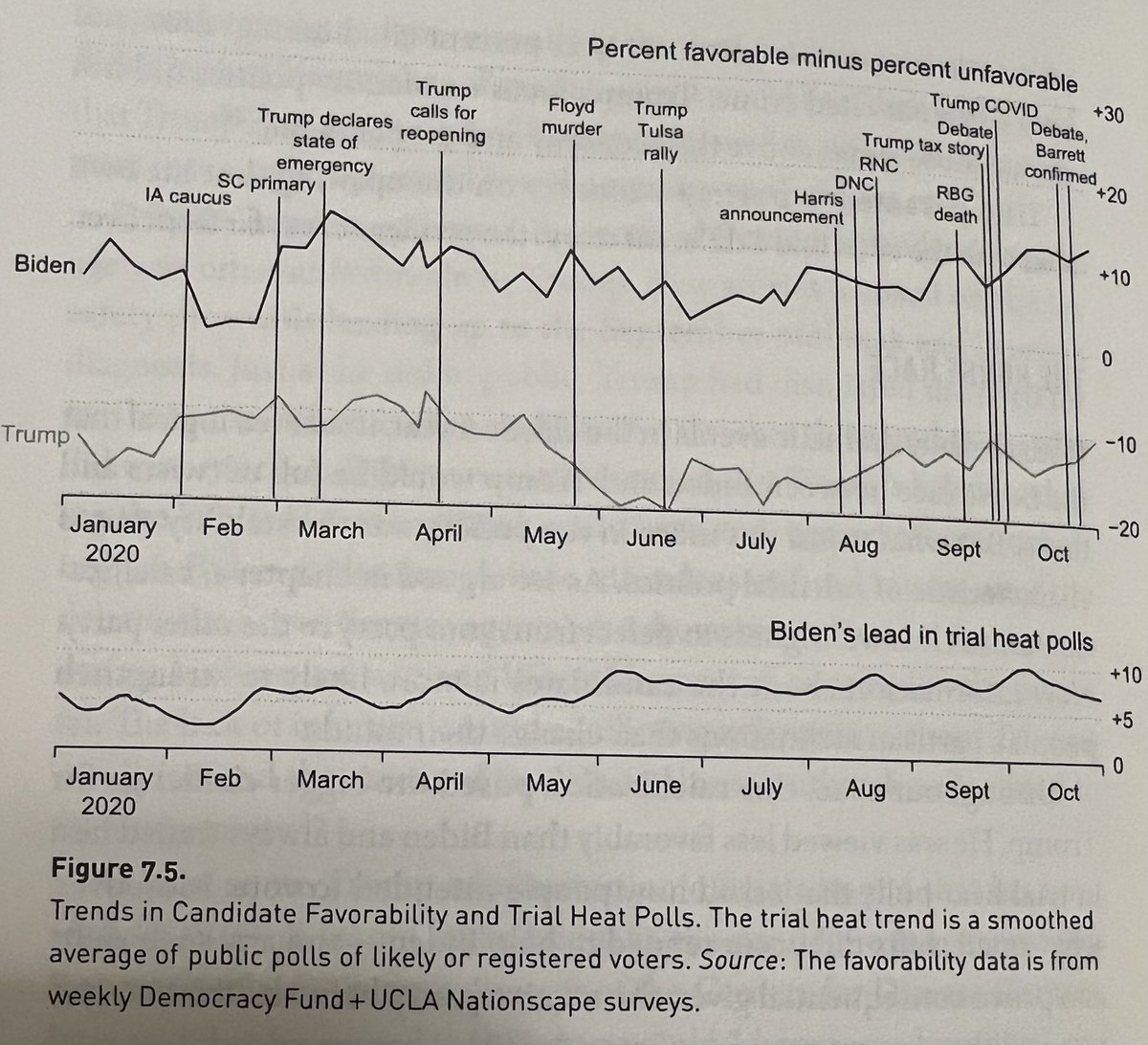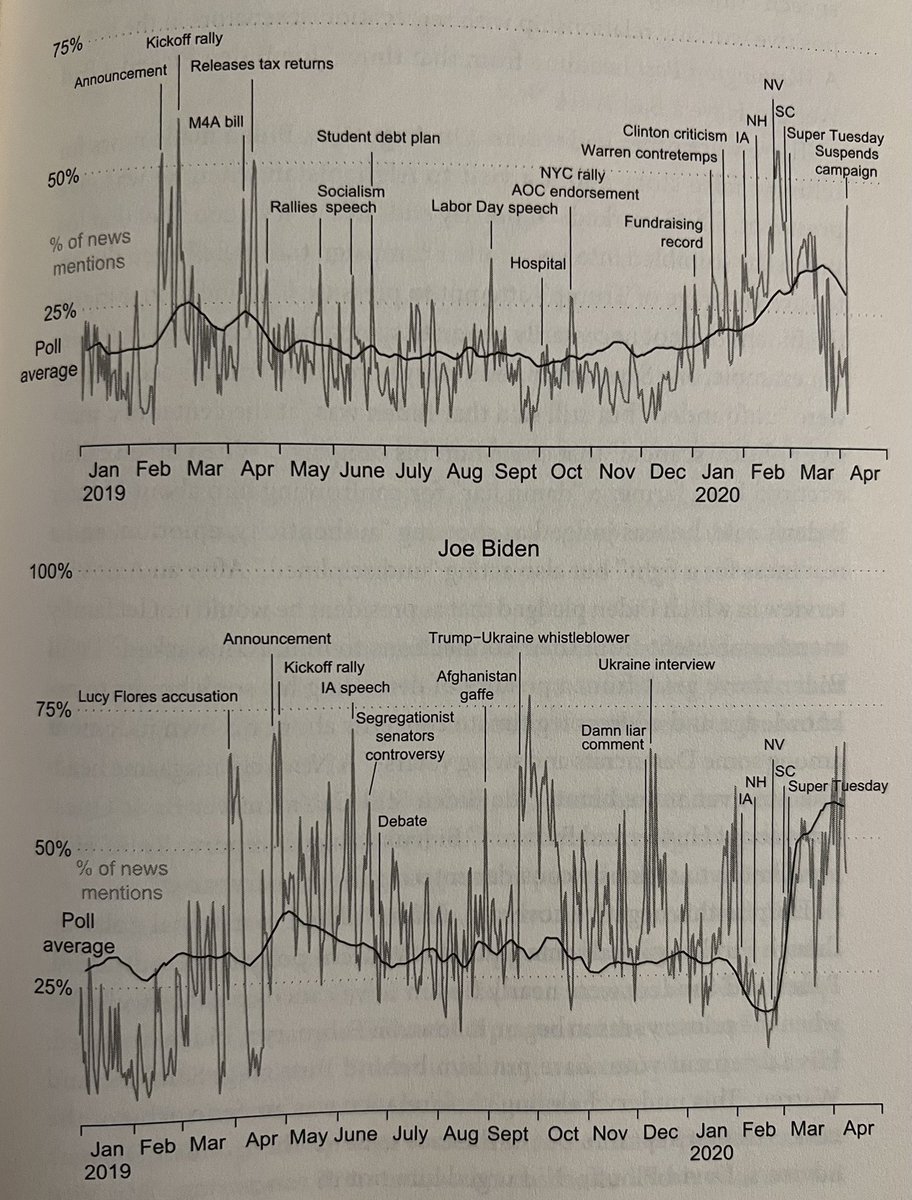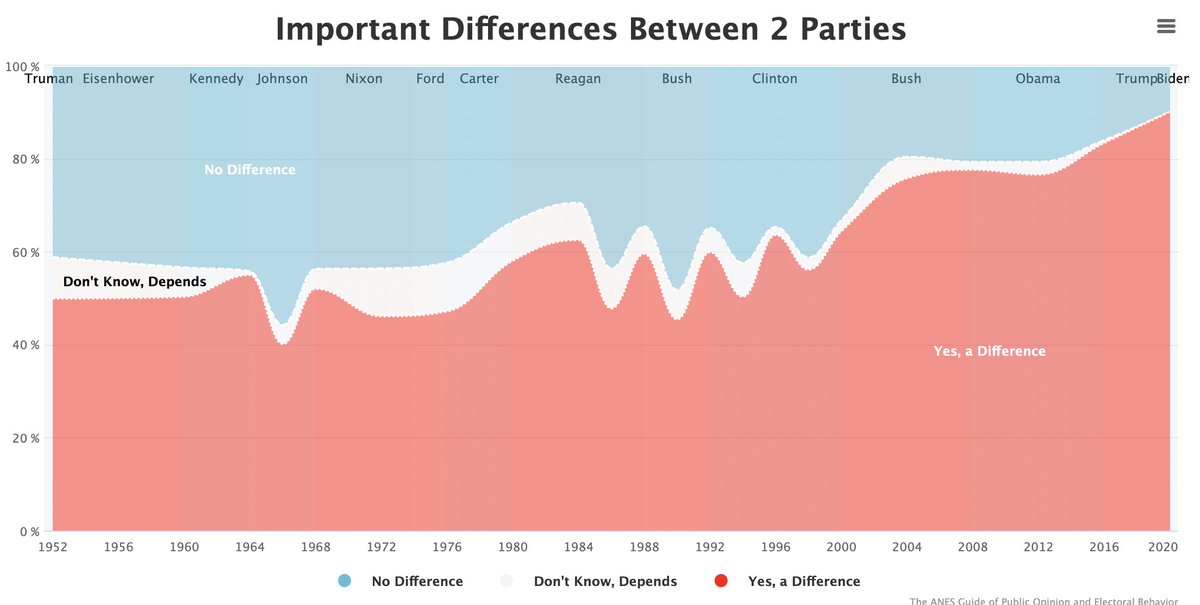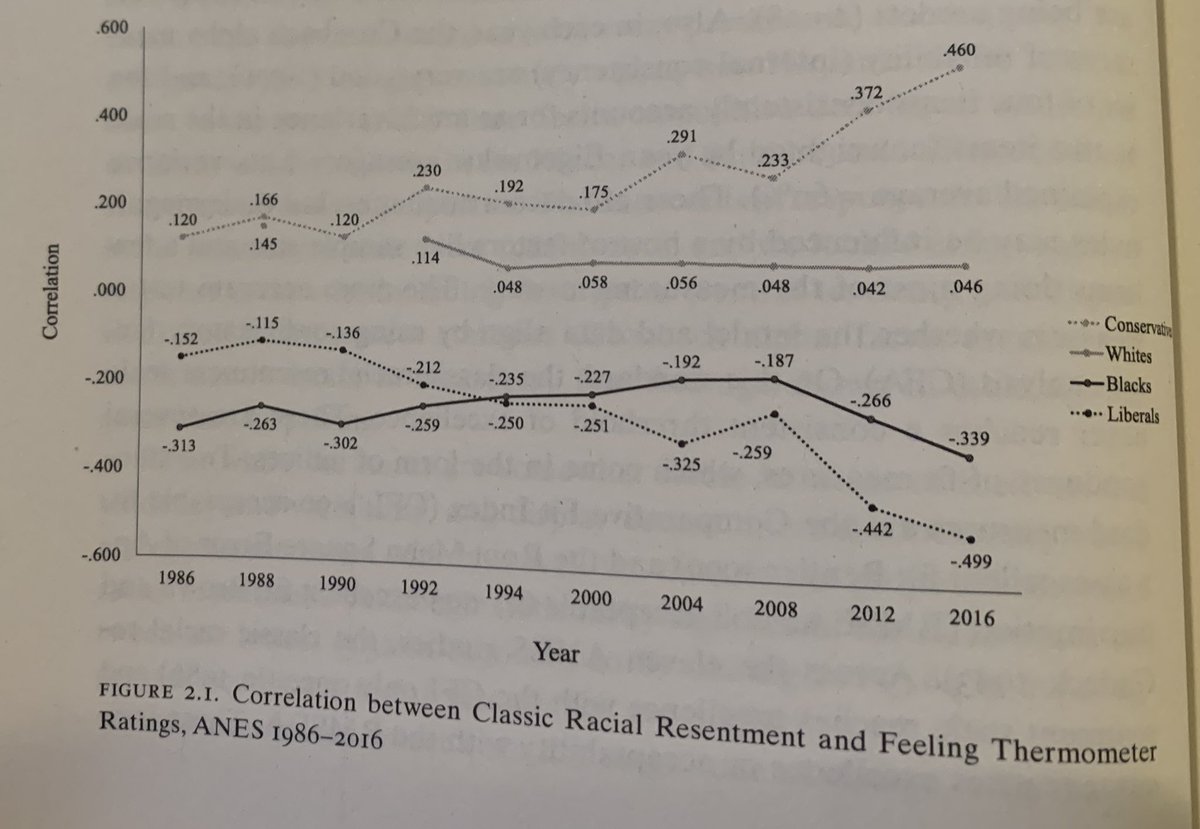
Michigan State political scientist & @ippsr Director; @hookedlansing Co-owner; Pod: @niskanencenter Science of Politics; New book: Polarized by Degrees
2 subscribers
How to get URL link on X (Twitter) App






 The primary race was, by the end, less stable. But Biden & Sanders drew most coverage & public support for most of the campaign. & Biden won with a similar coalition as Clinton: older & more partisan voters & Black voters
The primary race was, by the end, less stable. But Biden & Sanders drew most coverage & public support for most of the campaign. & Biden won with a similar coalition as Clinton: older & more partisan voters & Black voters

 Americans increasingly perceive the Republican Party as the more conservative party but some Americans remain ideologically confused
Americans increasingly perceive the Republican Party as the more conservative party but some Americans remain ideologically confused


https://twitter.com/mattgrossmann/status/1218603795753709568@whstancil The current congressional majority has historically high rates of both party unity & win rates in both chambers:
https://twitter.com/MattGrossmann/status/1544522695391563776

 There is no cross-national increase in the age divide. But later generations have both been more educated & more likely to divide in their voting based on education (with educated younger voting left & non-educated younger voting right)
There is no cross-national increase in the age divide. But later generations have both been more educated & more likely to divide in their voting based on education (with educated younger voting left & non-educated younger voting right)

 Their measure of left-right movement is perceptions of the party partitions on all ANES scales, which include racial & non-racial issue positions as well as ideology. At individual & aggregate levels, moving away from the perceived center loses adherents
Their measure of left-right movement is perceptions of the party partitions on all ANES scales, which include racial & non-racial issue positions as well as ideology. At individual & aggregate levels, moving away from the perceived center loses adherents
 The traditional racial resentment scale has become more closely tied to views of liberals & conservatives over time & is not closely tied to views of whites
The traditional racial resentment scale has become more closely tied to views of liberals & conservatives over time & is not closely tied to views of whites

https://twitter.com/JStein_WaPo/status/1480164452943208451But individual agency does not imply lack of structure. e.g. Manchin is the pivotal vote due to structural factors.
https://twitter.com/tonyromm/status/1472573937758449668Manchin has been ~consistent since the July letter, actually come up 250B but clear he didn’t except sunsets to get to his ceiling. Many didn’t want to hear it or fell for others’ bluffs. “make him vote against it” doesn’t work with someone running to cameras to say he’s a no
https://twitter.com/mattgrossmann/status/1435243594281930762
https://twitter.com/BCAppelbaum/status/1458040538310000644Overall, Democratic & Republican states don't perform differently across objective indicators, even though you can find polarized policies with real effects:
https://twitter.com/MattGrossmann/status/1456435998263500802eg voters asked in the Trump era whether they want more or less immigration or more or less health care spending are now being asked more or less from a new (or expected new) status quo. Fewer should now say more & more should say less, even if no one has changed ideal views